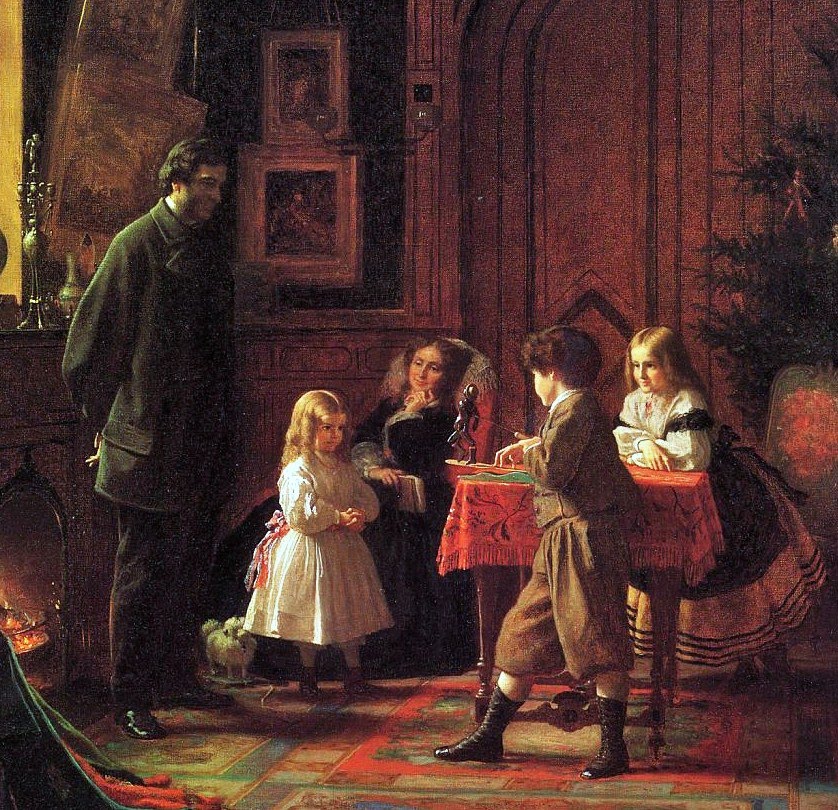
Monday
I am retooling a post that I wrote five years ago to apply to yesterday’s visit to my four grandchildren. As the three oldest, Esmé (7), Etta (5), and Eden (3), swarmed over me on their playroom floor, I recalled Henry Wadsworth Longfellow’s “The Children’s Hour.” It too features an elder man being swarmed by three girls.
The 1863 poem was one that, for decades, children were required to memorize. I encountered it first when my father read it to me as a child and later when I saw Don Martin’s Mad Magazine spoof of it. Martin, of course, took shots at its sentimentality.
But Mad wasn’t the first publication to question “The Children’s Hour.” Lillian Hellman in 1934 played off against the poem by using its title for her own play about a disaffected girl in a boarding school. In order to avoid being sent back to the school, she accuses two of her teachers of having a lesbian love affair, thereby destroying their lives. In other words, so much for the innocence of little girls.
Oversentimentalizing children doesn’t do justice to their full personhood. When one has rigid expectations of innocence, one doesn’t give children room to breathe. When we expect them to be angels, we have trouble handling those times when they are devils.
I therefore feel somewhat suffocated when the narrator of Longfellow’s poem talks of trapping his three daughters, even though the trap is “the round tower of my heart.” That image, it’s worth noting, follows up a genuinely disturbing image of Bishop Hatto being eaten alive by the mice that invaded the tower where he was hoarding grain from the starving peasants. I wonder if some part of Longfellow doesn’t feel nervous about how vulnerable children make him feel.
But that being said, I felt no cynical distance when I was wrestling with my three granddaughters. Instead, “The Children’s Hour” affected me as Longfellow no doubt intended. I was totally sentimental. Here’s the poem:
The Children’s Hour
By Henry Wadsworth Longfellow
Between the dark and the daylight,
When the night is beginning to lower,
Comes a pause in the day’s occupations,
That is known as the Children’s Hour.
I hear in the chamber above me
The patter of little feet,
The sound of a door that is opened,
And voices soft and sweet.
From my study I see in the lamplight,
Descending the broad hall stair,
Grave Alice, and laughing Allegra,
And Edith with golden hair.
A whisper, and then a silence:
Yet I know by their merry eyes
They are plotting and planning together
To take me by surprise.
A sudden rush from the stairway,
A sudden raid from the hall!
By three doors left unguarded
They enter my castle wall!
They climb up into my turret
O’er the arms and back of my chair;
If I try to escape, they surround me;
They seem to be everywhere.
They almost devour me with kisses,
Their arms about me entwine,
Till I think of the Bishop of Bingen
In his Mouse-Tower on the Rhine!
Do you think, O blue-eyed banditti,
Because you have scaled the wall,
Such an old mustache as I am
Is not a match for you all!
I have you fast in my fortress,
And will not let you depart,
But put you down into the dungeon
In the round-tower of my heart.
And there will I keep you forever,
Yes, forever and a day,
Till the walls shall crumble to ruin,
And molder in dust away!

